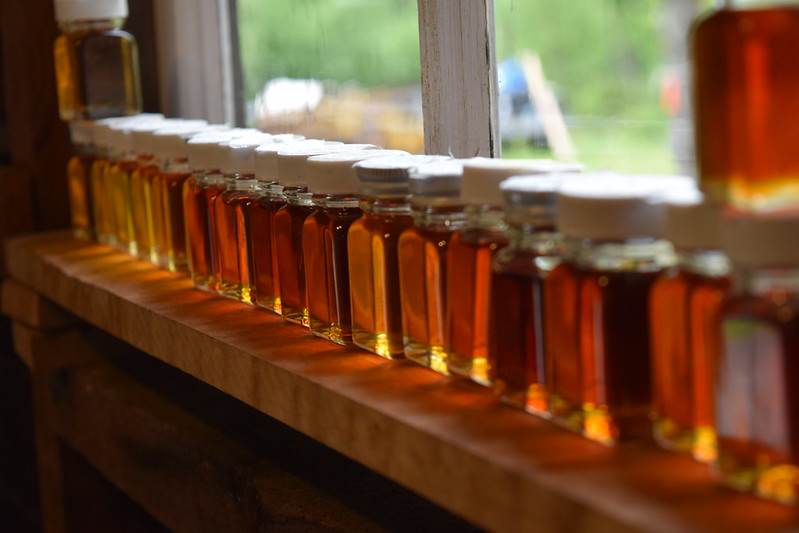Search Results
Results for: 'maple'

Syrup clarity is one of the four basics of grading. Syrup that come right off the evaporator is cloudy. Most of the cloudiness found in unfiltered syrup is naturally occurring minerals such as calcium also known as sugar sand or niter. Syrup clari...

Traditional Collection Methods
Traditional methods of sap collection have changed over time. Initially, Native Americans created gashes in the stem, and directed sap into wooden or bark vessels. Early spouts were created by hollowing out small twigs, which were inserted into ta...

Access to a sugarbush is critical for installing and repairing sap collection equipment, tapping and managing crop trees and responding to the effects of natural disturbances. Quality access to the sugarbush relies and a road and trail system that...

Diatomaceous Earth (DE) Filtering
Just as the sugars found in sap become concentrated during boiling, so too are the naturally occurring minerals found in sap. As the concentration of minerals increases in the sap, it approaches, then exceeds the point of saturation. When that hap...

As trees form, the size and shape of its stem and crown, will be impacted by living in a low light environment such as the forest's understory. So-called suppressed trees are able to capture just enough sun to survive. Sugar maples growing in the ...
